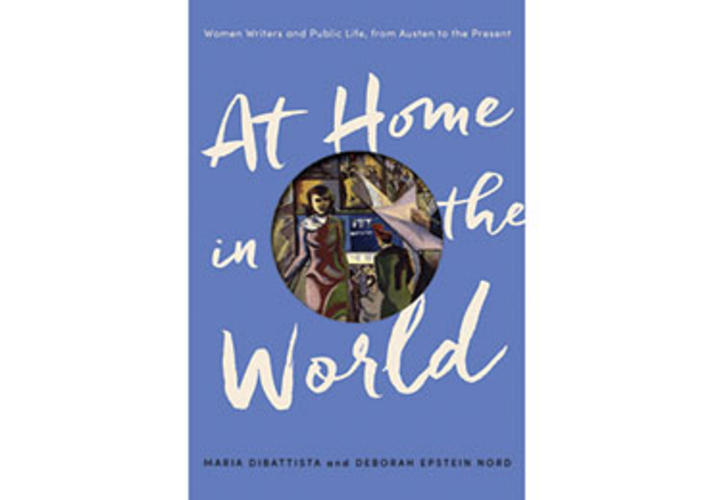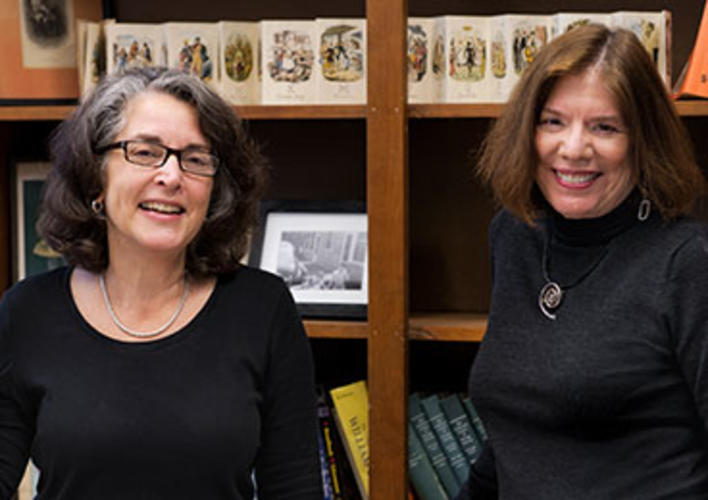Odysseus departs for war, adventure, and the open sea. Penelope stays home, weaving the fabric of domestic life. The story is ancient, but in a new book, two Princeton English professors argue that the notion that the lives of men and women are shaped by fundamentally different preoccupations still resonates in a common but misleading understanding of fiction written by women.
The view that Anglo-American women write primarily domestic novels “is itself a resilient fiction,” professors Maria DiBattista and Deborah Epstein Nord write in At Home in the World: Women Writers and Public Life, from Austen to the Present (Princeton University Press). “This domestic myth casts women’s writing as inevitably — and conservatively — preoccupied with the mundane and circumscribed aspects of home, personal relationships, sexual mores, marriage, and the taming of refractory men.”
Drawing on a wide range of authors spanning more than two centuries, DiBattista and Nord argue that women writers have just as often wrestled with public, supposedly male concerns like history, politics, war, and social reform, shaping their fictions around issues such as slavery, immigration, and the making of the American frontier.
“Men and women don’t necessarily approach these things in the same way or with the same sort of psychic material,” Nord says. “But the scope and the subjects and the concerns of men and women are closer than maybe we would have thought.”
Nord and DiBattista also argue that women writers often treat the domestic sphere with skepticism, irony, or even revulsion. In stories written by women, protagonists struggle to reconcile the competing, sometimes equally compelling claims of home and abroad, private and public, personal and political.
Even a writer as apparently domestic as Jane Austen challenges traditional notions of women’s writing, DiBattista and Nord argue. In Persuasion, Austen’s last completed novel, heroine Anne Elliot attains freedom and happiness by abandoning her family’s landed estate for a less-settled life with her husband, a naval officer who earned his fortune in the Napoleonic Wars. Anne’s embrace of a peripatetic life mirrors Austen’s acceptance of new, more fluid social structures, DiBattista and Nord argue.
Although individual characters may choose home or abroad, the public or the private, “the vision of the novel itself is always saying these are divided imperatives, divided longings,” DiBattista says. “And that’s why so many of the novels that we deal with end on a note of suspension or irresolution. They’re not giving us easy answers.”
At Home in the World grew out of “The Female Literary Tradition,” a course that DiBattista and Nord taught together three times in the 2000s. Once, as DiBattista listened to Nord’s closing lecture, she realized that their examination of women’s writing had begun to coalesce around key themes: the vexed meaning of home and country, the importance of venturing abroad, the radical possibilities of what home someday could become.
Their work engages with a debate about the nature of male and female writing that stretches back to the advent of feminist literary criticism in the 1970s — and perhaps to Virginia Woolf’s famous 1929 essay on women’s writing, “A Room of One’s Own.” Early feminist critics argued that women’s writing was different from men’s and that women writers had historically seen themselves as engaged in a distinctive, shared project.
Although DiBattista and Nord perceive the women writers they discuss as constituting what DiBattista calls a “federation,” they acknowledge that, for some readers, the argument of At Home in the World may seem to challenge the notion that women’s writing belongs in its own category.
“Is it still useful to think in terms of a women’s literary tradition? Is that something that had its purpose and now no longer has?” DiBattista asks. “We hope our book keeps that conversation alive.”














No responses yet